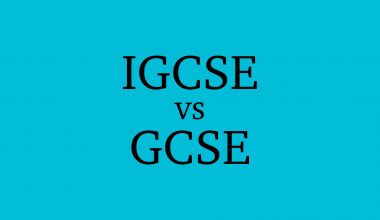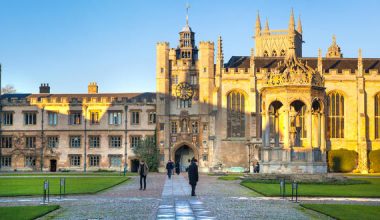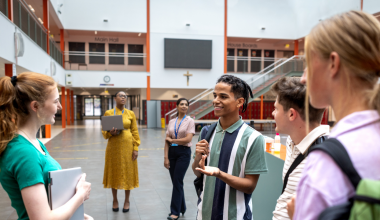What time do schools start in the UK? Primary school education is a required early education program for young children ages 4 to 13 years old.
It gives the next generation the fundamental knowledge and abilities needed to continue their education through high school while also letting them discover their hobbies without feeling under pressure.
The start and end times of the primary school day have an impact on the child’s sleep, social life, and even the lives of their parents. These hours are quite important, whether the parent may have a rigid work schedule or one who has only recently arrived in the UK and is unfamiliar with the local schools. Find out more about What Time Primary Schools Start and Finish in the UK in this article.
Table of contents
- What Time Do Schools Start in The UK Basic Education System?
- UK Public and State-Run Primary Schools
- Why do Primary Schools in the UK Start at 8:00 a.m.?
- Why do Elementary Schools Dismiss at 15:30?
- Do Kids in Primary Schools Receive Adequate Rest?
- What Time Does a Primary School Day Start and Finish in The UK?
- What Activities Are Available for Primary-Aged Students After School Hours?
- Frequently Asked Questions About What Time do Schools Start in the UK
- References
- Recommended Posts
What Time Do Schools Start in The UK Basic Education System?
In the UK, elementary education is required, and the majority of kids can go to their neighborhood state primary school. As long as they hold the right of residence, international children can live in the UK without facing any immigration restrictions.
Regional primary schools differ in their starting ages, curricula, school holidays, assessments, and credentials as a result of the decentralization of the UK educational system. Continue reading to find out more about the primary schools in each area.
UK Public and State-Run Primary Schools
There were 20,806 state primary schools with 5.5 million students enrolled during the 2020–21 academic year. The UK’s spending on education increased by 6% to £27,380 million for primary schools.
Despite regional differences, kids begin school around the age of four or five and complete elementary education in seven to eight years.
See Also: When is the Student Finance Application Deadline in the UK?
In their public schools, all four countries strive for inclusivity. As a result, students with special educational needs (SEN) are entitled to attend their neighborhood school. To support the children’s educational journey, the local government and schools should provide for their requirements sufficiently.
For pupils with significant and complex requirements, there are also a few special schools. SEN help in schools is a topic we cover in-depth in our essay on the UK educational system.
What is the Cost of attending UK Primary Schools?
There are no tuition costs for public schools. Uniforms, PE equipment, stationery, and transportation to school are all expenses that parents must cover, which can dramatically raise your cost of living. For field trips or extracurricular activities, some schools may additionally request a voluntary donation.
Even so, if a child’s parents are unable to give, they won’t do so. Caregivers might seek financial aid to help them pay for these expenses.
Read Related Post: Is There a Maximum Age for University in the UK?
How is the School Calendar for Primary Schools?
In most cases, Monday through Friday constitutes a school week. With breaks for lunch, morning, and afternoon, a normal primary school day lasts from 8:00 or 9:00 until 15:30 or 16:00. On the other hand, Fridays are typically shorter days for primary schools. Between the four countries, the school vacations vary a little.
Read Also: How Many GCSEs Do Students Take In 2024? 2024 Complete Guide
Are Extracurricular Activities in Primary Schools?
Sports, the arts, and technology are all available as extracurriculars in many schools. It relies on the school’s resources and budget and varies greatly amongst institutions. So many kids participate in extracurricular activities outside of school, which can be expensive.
In the UK, physical education (PE) is an essential component of all curricula, and more than 40% of primary schools allow kids at least an hour outside of lunchtime to play.
However, according to research published in 2018 by Learning through Landscapes (LTL), 81% of teachers believe students don’t spend enough time learning outside. Hence the effort to promote Outdoor Classroom Day.
As a side note, 96% of kids indicated they were outside over the summer vacation, other than in their yard, according to the Children’s People and Nature Survey for England (2021).
Read More: Can You Do A Levels at Any Age in College?
Why do Primary Schools in the UK Start at 8:00 a.m.?
Although 8:40 a.m. may seem very early, it helps primary school students get ready for high school life and promotes time management. The starting time must not be later for the parents who drop their children off.
The hours that adults often spend traveling to or at work are coincident with the periods that elementary schools open. Moving this time later would interfere with parents’ work schedules and prevent them from dropping off their children without being late for work.
To some people, particularly those who are new to the nation, this might appear to be rather late. However, schools and the government determined that an arrival time of 08:40 struck a reasonable compromise between letting the kids get enough rest and making sure their parents are there to pick them up and that they don’t stay up too late.
Why do Elementary Schools Dismiss at 15:30?
An elementary school student can have the late afternoon and evening free because class ends at 15:30. Most young children can’t focus for more than a few hours at a time, even with breaks. Additionally, it implies that they can create a schedule for after school.
The youngster may occasionally stay after school to socialize with friends while being watched over by a parent or to participate in an activity of their choosing while being watched over by a teacher.
After that, they will have the evening free to spend with their families. Since the youngster can arrive home in time for a scheduled meal, keeping school hours reasonable provides for more family time. The child’s relationship with their parents and siblings and mental health often improve as a result.
The child may have homework to finish after supper or some free time to watch television before carrying out their nighttime ritual and going to bed at the proper time.
Do Kids in Primary Schools Receive Adequate Rest?
Children in primary school need between 10 and 12 hours of sleep each night to stay healthy and have enough energy for the day. Generally speaking, waking up at about 8:00 in the morning is appropriate because school starts at around 8:40.
This indicates that for kids to get their recommended 11 hours of sleep, bedtime should be around 21:00. It is crucial to create a strict bedtime and evening schedule. This is crucial for the child’s mental and physical health as well as for their development into a responsible, well-organized adolescent and adult.
Children may have the following effects if they don’t get enough sleep:
- Unable to develop healthily
- Being unable to focus and pay attention in class
- Unable to retain what they have learned
- Being unable to maintain a stable state, resulting in either hyperactivity or inactivity
- Immune system that isn’t strong enough to prevent illnesses
- Developing emotional instability could result in improper actions
- Short attention span.
See Also: Is Chemistry A Level Hard? How Hard is A-Level Chemistry? (Compared To GCSE)
What Time Does a Primary School Day Start and Finish in The UK?
At 8:40, the students arrive, enter their classrooms with their instructional materials, and the teacher completes registration. The instructor then starts all of the major stage 1 or 2 lessons they have prepared. These include languages, math, science, history, geography, art, music, and math. They also include math and science.
After that, from 10:30 till noon, there is a morning break. Students are expected to bring a small snack of their choosing for this period, and milk is usually provided if the student is eligible or has paid for it.
Lessons continue until lunchtime, which typically lasts an hour and 15 or 30 minutes and starts at noon. During lunchtime, students can bring in a packed lunch or have the meal prepared at school.
School meals are free until year 3, after which parents have the option of paying for them or packing their child’s lunch every morning if their child is not eligible for free school meals.
They are then free to depart or participate in an activity when the school day concludes at 3:30.
Similar to the weekday timetable, school on Friday ends at 12:30 instead of noon for lunch.
What Activities Are Available for Primary-Aged Students After School Hours?
Sometimes parents are either unavailable to pick up their children after the school day or occupied when it begins.
Children can join breakfast and homework clubs in the morning. These typically give the kids a limited number of options for the first and most crucial meal of the day.
Different cereals with milk and toastable bread with butter, jam, and other available spreads are popular choices.
They can decide whether to eat with the others who arrived earlier or by themselves if they need some quiet time in the mornings or are engaged with homework.
An after-school club may be one of the many afternoon activities available for students to participate in and try out. These groups are advantageous for the kids since they help them discover new passions and talents, as well as promote positive routines and good social interactions.
Additionally, it will give them a welcome vacation from their studies. Arts and crafts, chess and other board game clubs, and sports clubs are a few examples of frequent pursuits.
Frequently Asked Questions About What Time do Schools Start in the UK
What time does basic education end in other nations? The average school day lasts six to seven hours in most nations. This occurs in the UK between 07:00 and 15:30.
UK school schedule
In the UK, a school year must have at least 380 sessions (190 days) of attendance. Each school sets its own schedule, however it generally lasts between 5 and 6 hours each day. The typical start time for school is between 8:00 and 9:00, and fishing is from 15:00 to 16:00, however every school has a different timetable.
Although it varies significantly, the typical start and completion times for younger children are between 8:30 and 9:00 am and 3:00 and 3.30 pm, respectively, for older children. When some kids go home for lunch and others stay at school, there is a very lengthy lunch break in the middle. Should the start time of schools be altered?
The basic UK school system has the same official set hours throughout the entire academic year, with start times ranging from 08.45 to 09.00 and finishes between 15 and 15.30. The primary goal of the 08.45-09.00 start time for primary school students is to allow them adequate time in the morning to get ready and come on time.




